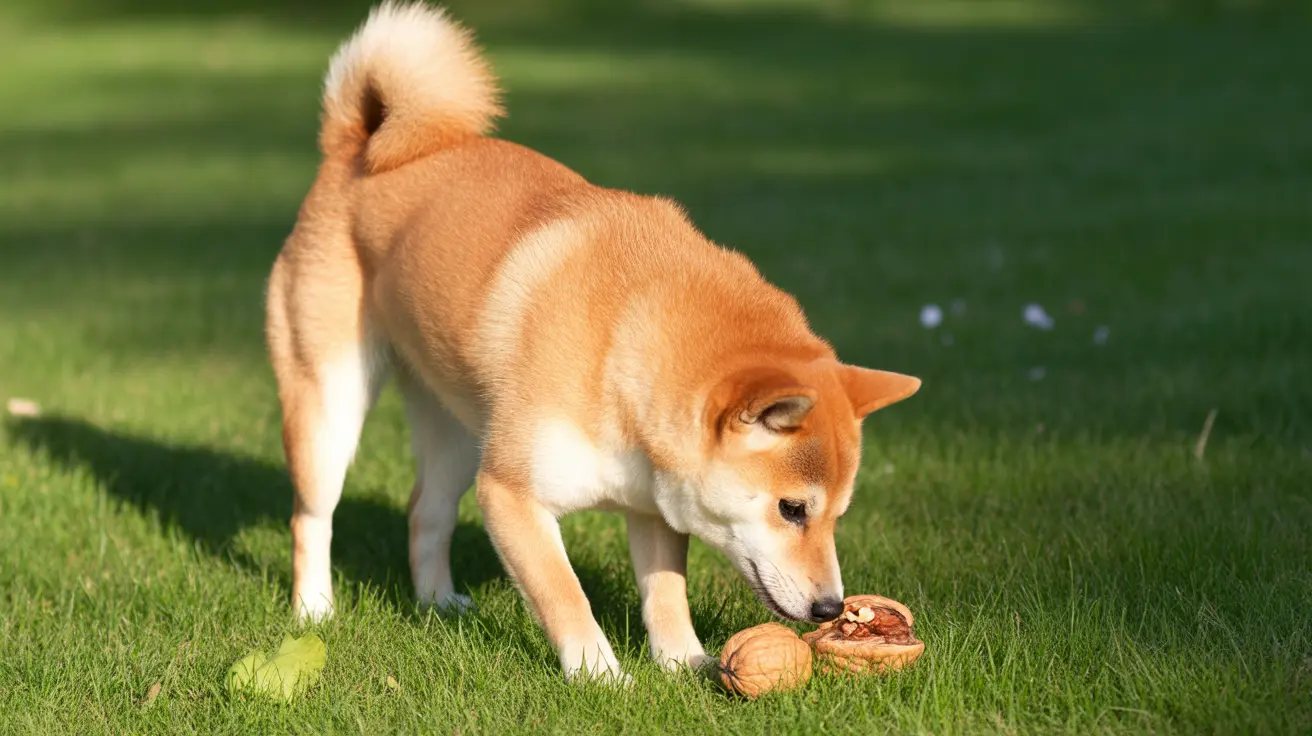As pet owners become increasingly conscious about their dogs' diets, questions about human foods like walnuts often arise. While walnuts are nutritious for humans, they present several significant risks for our canine companions. This comprehensive guide will explore whether dogs can have walnuts, the potential dangers, and what you need to know to keep your pet safe.
Understanding the risks associated with feeding walnuts to dogs is crucial for responsible pet ownership. From digestive issues to severe toxicity concerns, the implications of walnut consumption in dogs can be serious and potentially life-threatening.
Different Types of Walnuts and Their Impact on Dogs
There are two main types of walnuts that dog owners should be aware of: English walnuts and black walnuts. Each presents its own set of risks to canine health.
English Walnuts
While English walnuts (commonly found in grocery stores) aren't inherently toxic to dogs, they still pose significant risks. These nuts are high in fat and can cause gastrointestinal upset, even in small amounts. The size and shape of walnuts also present a serious choking hazard, particularly for smaller breeds.
Black Walnuts
Black walnuts are extremely dangerous for dogs. They contain juglone, a toxic compound that can cause severe poisoning. Even brief exposure to black walnuts can lead to serious health complications, including:
- Severe vomiting and diarrhea
- Muscle tremors and seizures
- Hyperthermia
- Potential death if left untreated
Major Health Risks of Walnuts for Dogs
Digestive Issues and Pancreatitis
The high fat content in walnuts can trigger pancreatitis, a painful inflammation of the pancreas. Symptoms include:
- Severe abdominal pain
- Repeated vomiting
- Loss of appetite
- Lethargy
- Fever
Mold and Mycotoxin Dangers
Walnuts are highly susceptible to mold growth, which produces dangerous mycotoxins. These toxins can cause:
- Neurological symptoms
- Muscle tremors
- Seizures
- Severe vomiting
- Potentially fatal reactions
Physical Hazards
The physical structure of walnuts presents several risks:
- Choking hazards
- Intestinal blockages
- Damage to teeth
- Shell fragments causing internal injuries
Prevention and Safety Measures
To protect your dog from walnut-related health issues:
- Keep all walnuts and walnut-containing foods out of reach
- Monitor your yard if you have walnut trees
- Clean up fallen nuts promptly
- Consider fencing off areas where walnuts commonly fall
- Be vigilant during walks where walnut trees are present
Frequently Asked Questions
Can dogs safely eat English walnuts, and are there any specific precautions to take?
While English walnuts aren't immediately toxic, they're not safe for dogs to eat. The high fat content, choking risk, and potential for mold contamination make them dangerous. It's best to avoid feeding English walnuts to dogs entirely.
How toxic are black walnuts to dogs, and what symptoms should I watch for?
Black walnuts are highly toxic to dogs due to the compound juglone. Watch for symptoms like vomiting, diarrhea, muscle tremors, seizures, and hyperthermia. If you suspect your dog has consumed black walnuts, seek immediate veterinary care.
What are the dangers of feeding walnuts to dogs, including mold and mycotoxin risks?
Walnuts can harbor dangerous molds that produce mycotoxins, which can cause severe neurological symptoms. Additionally, their high fat content can lead to pancreatitis, and they pose choking and obstruction risks.
Are there any safe alternatives to walnuts as treats for dogs?
Yes, there are several safer alternatives for dogs, including small amounts of plain, unsalted peanuts, cashews, or pine nuts. However, always consult with your veterinarian before introducing any new treats to your dog's diet.
What should I do if my dog accidentally eats a walnut, particularly if it's black or moldy?
Contact your veterinarian immediately. If possible, note the type of walnut consumed and approximately how many. For black or moldy walnuts, this is especially crucial as immediate treatment may be necessary to prevent serious complications.
Remember, when it comes to your dog's health, it's always better to err on the side of caution. While some human foods can be safely shared with our canine companions, walnuts are best kept off the menu entirely.






